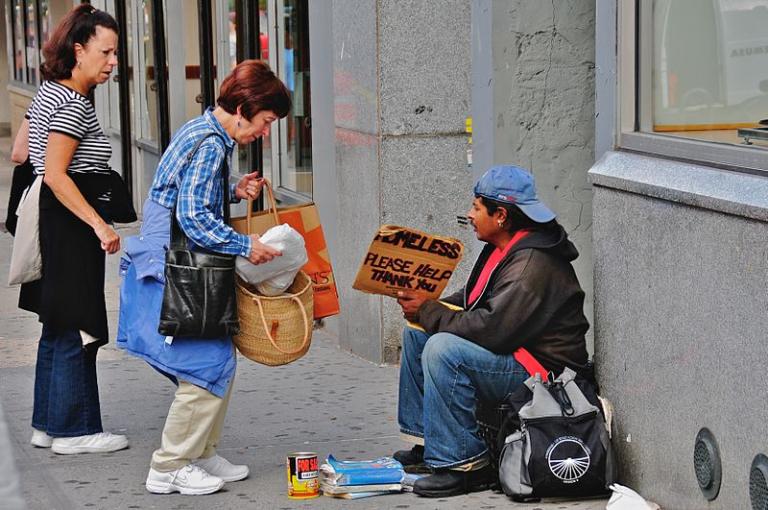![https://commons.wikimedia.org/wiki/File%3ARed_wine_closeup_in_glass.jpg; By Quinn Dombrowski (originally posted to Flickr as Wine) [CC BY-SA 2.0 (http://creativecommons.org/licenses/by-sa/2.0)], via Wikimedia Commons](https://wp-media.patheos.com/blogs/sites/533/2017/01/800px-Red_wine_closeup_in_glass.jpg)
Remember the Women’s Christian Temperance Union? I should remember more of it than I do, from my grad school days, but it seems to me I’ve got a book somewhere down in the basement, unless it made its way to a donation bin by now. I recall two things: that they had genuine concerns about drunk fathers failing to care for their children, rather than a puritanical obsession with Demon Rum and alcohol in general; and that the activism of women in the WCTU was a stepping stone to other sorts of activism and community involvement.
But, of course, in the end, we got prohibition, and the notion that temperance is laughable.
Except that, now, a curious article made its way across my twitter feed, “Measuring the loss of life from the Senate’s tax cuts for alcohol producers,” from Brookings, by Alex Looney. In it, Looney inveighs that we need to step up our fight against Demon Rum and, rather than reducing taxes for craft beers and other small producers as is the case in the current tax plan, we need to increase excise taxes on alcohol and apply them evenhandedly, based purely on the amount of alcohol in the product.
Based on empirical studies measuring the link between alcohol taxes and alcohol-related injuries, I estimate the legislation will cause between 280 and 660 additional motor vehicle deaths a year and approximately 1,550 total alcohol-related deaths annually from all causes. . . .
Based on economic evidence of the negative externalities imposed by alcohol, the total local, state and federal tax on alcohol should be roughly four times higher than it is now, and certainly not lower.
The objective, rather than simply raising revenue, would be two-fold: to “pay for” the costs associated with drinking (traffic deaths from drunk driving, increases in violence and suicide associated with heavy drinking, and general ill-health), and to reduce the amount of drinking that occurs in the first place. In that sense, the taxes would function like those on cigarettes.
But alcohol isn’t like cigarettes.
So far as I understand, the health problems associated with alcohol are not related to drinking, in general, but caused by drinking-to-excess, either on an ongoing basis (alcoholism) or at any given period in time (binge drinking). It’s also generally accepted, so far as I know, that moderate social drinking is perfectly fine and (though this could be junk science, for all I know) can even have moderate health benefits. And there’s a line of thought that says that the more an individual (or community) is conditioned to social drinking, the less likely they are to engage in binge drinking — that is, that binge drinking is at least in part a consequence of the way we treat drinking in the U.S., technically illegal but commonly engaged in, in an underground fashion, by under-21s, and with the hidden nature of the illegal drinking producing behaviors such as “pre-gaming” at college (that is, doing shots in one’s dorm room prior to going out to a public activity where drinking isn’t possible). If young adults grew up with the idea that drinking was something that one did in moderation, and gained experience with that at the family dinner table, the argument goes, then they wouldn’t binge.
Is that right or wrong? It makes sense, anyway. And Looney’s idea that all alcohol is alike and should be treated the same, doesn’t make sense. Hoity-toity imported wine, which he suggests is just as nefarious as a fifth of Popov’s vodka, really isn’t. You’re not going to pay $20 or $30 for a bottle of wine that you intend to drink quickly for the purpose of getting drunk. Same with a bottle of snooty craft beer vs. a keg of Budweiser.
In this respect, as well, the pro-pot advocates who say that being high is less of a danger to oneself and society than being drunk miss the mark, because smoking pot is exclusively about getting high. Different kinds of pot produce different kinds of highs, but there is no sense in which people smoke pot for any other purpose, as there is with alcohol.
And Looney cites studies calculating the “elasticity” of alcohol, that is, the extent to which increased prices produce decreased consumption. But, again without having any data at hand, it seems to me that, when taxed to make alcohol disproportionately expensive, it is social drinking that you’d decrease, not drinking-to-excess. You’d cause people to be less likely to get that glass of wine or craft beer at a restaurant, and choose pop instead. You’d decrease the frequency of people having a glass of wine with dinner at home. But would it really change the behaviors of those who are drinking-to-get-drunk?
Now, look, I’m not a big fan of taxing to change behavior, and of vice taxes in general. (Alcohol was much cheaper and less regulated in Germany than here, for instance.) And I certainly think that this tax change doesn’t belong in a bill that claims to be about tax simplification. But if we’re going to have vice taxes, we should at least be smart about them, and recognize that not all alcohol consumption is the same.
Image: https://commons.wikimedia.org/wiki/File%3ARed_wine_closeup_in_glass.jpg; By Quinn Dombrowski (originally posted to Flickr as Wine) [CC BY-SA 2.0 (http://creativecommons.org/licenses/by-sa/2.0)], via Wikimedia Commons












